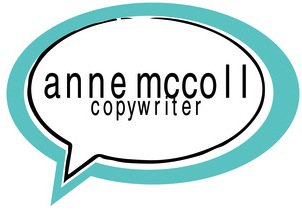Don’t come to our store.
As a freelance copywriter, I dig Black Friday for all of the great ads. Just imagine, it’s Black Friday madness circa early 2000s. People camping outside Best Buy like it’s Coachella, freezing their butts off for the chance to score a TV at 70% off. The doors open, the stampede begins, and humanity collectively loses its mind over a flat screen.
Every retailer out there was playing the same game: bigger deals, flashier ads, more chaos. But then, in 2015, REI—an outdoor retailer with actual guts—did something no one saw coming. They closed their doors on Black Friday. Shut down. Lights off. And they gave all 15,000 employees the day off and told the rest of us to, wait for it… #OptOutside.
Instead of encouraging you to buy more stuff you probably don’t need, REI suggested you take a hikeOr go skiing. Or just hang out in a park. It was bold, it was brilliant, and it flipped Black Friday on its head. Now, every year, they double down on this move, closing their doors and giving their employees a paid day to enjoy the outdoors. Turns out, people love a company with a backbone.
**** From a creative perspective: #OptOutside is a pun on opt in or opt out. Our brain appreciates a twist on the familiar.
Don’t buy our stuff.
But wait, REI wasn’t the only brand shaking things up. In 2011, Patagoniaran an ad in The New York Times that basically said, “Don’t buy this jacket.” The ad showed one of their jackets front and center, but instead of a shiny list of features, it outlined the environmental cost of making it: water wasted, carbon emitted, all the not-so-fun stuff we tend to ignore.
The kicker? That ad made their sales go up 30%. Why? Because it wasn’t just an ad; it was a manifesto. Patagonia wasn’t just selling jackets—they were selling values.
And they didn’t stop there. Patagonia has built an entire ecosystem around sustainability:
They partnered with eBay to create a marketplace for people to buy and sell used Patagonia gear, giving it a second life. Now, they’ve got a “Worn Wear” section on their site for buying pre-loved items.
Since 1985, they’ve pledged 1% of sales to environmental causes. They even co-founded a nonprofit to encourage other businesses to do the same.
In 1996, they switched to 100% organic cotton, ditching the pesticides and showing the world how it’s done.
**** From a creative perspective: An ad that says don’t buy this is completely unexpected and is a scroll stopper.
These moves aren’t just marketing stunts—they’re proof that a brand can make money and make a difference. And that’s the magic here: brands like REI and Patagonia don’t just slap their values on a poster. They weave them into every decision they make. It’s values at the core, not the crust.
How to Put Your Values at the Core of Your Small Biz
You might not be REI or Patagonia (yet), but that doesn’t mean you can’t bake your values into everything you do. Here are five ways to start:
Maybe you’re an interior designer, and you donate furniture to Humble Design, an organization that helps people recovering from homelessness furnish their first homes.
Maybe you’re an analytics company, and you give your employees time off to volunteer.
Maybe you’re a graphic designer, and you support the marketing efforts of a nonprofit.
Maybe you’re an accountant, and you donate to the Audubon Society—just because you love birds.
With much gratitude for you,


